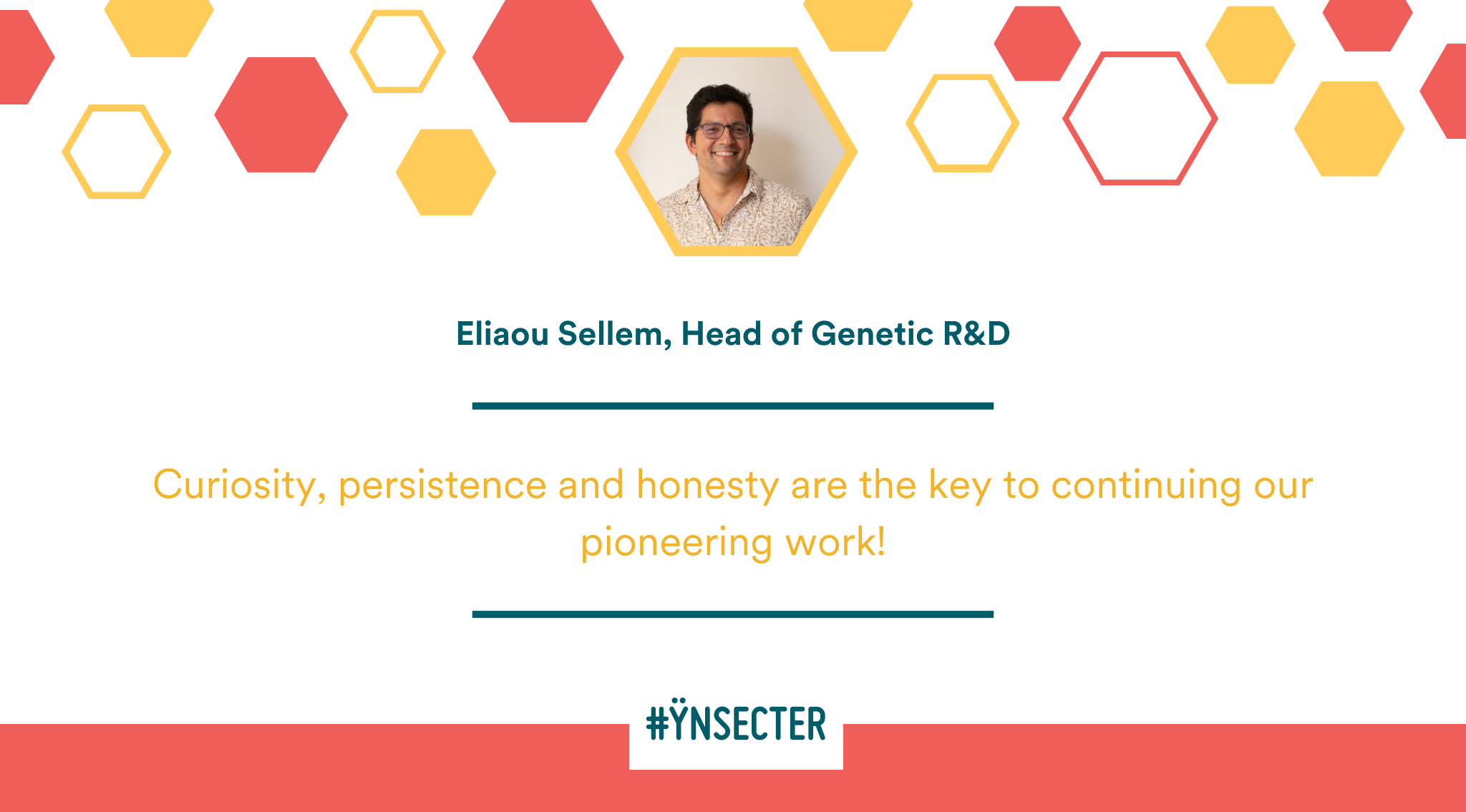Getting the provisional green light from the EFSA is a major step forward for the industry. It should pave the way for future approvals, particularly on human consumption of defatted insect protein, which represents the largest human food market segment in terms of value and volumes, especially in sports (muscle performance and regeneration ) and health nutrition.
Ÿnsect has identified these markets as the most promising with YnMeal, one of its defatted ingredients.
Ÿnsect has submitted its Novel Food application (without requesting information protection for five years, so that its data can be used by all within the European sector) demonstrating an allergen profile much lower than using the whole insect.
Ÿnsect will be filing a GRAS request in the USA in the coming months to serve the world’s largest market for fitness and sports nutrition.
Ÿnsect has already signed a commercial contract within these markets, demonstrating its leading position in the industry.
A major step forward for the European and French Insect industry
On Wednesday, January 13, 2021, the European Food Safety Authority (EFSA) announced a favourable safety assessment of mealworms for human food following the work done by a French IPIFF[1] Food task Force and its members. The EFSA has concluded that this product is safe for human consumption, under the requirements and procedures after a thorough evaluation, as required by the European Union (EU) regarding new food legislation (EU Regulation 2015/2283). This favourable assessment will have to be confirmed by the European Commission’s Health Directorate General, which will give the final authorisation for market approval in the European Union.
“We need to celebrate this breakthrough. It is a major achievement that rewards the work that has been done for years by the entire European insect industry gathered under IPIFF umbrella. It demonstrates, if proof was needed, the excellence of the European and French insect industry and its global leadership.” explains Antoine Hubert, CEO of Ÿnsect.
Growing market potential
After authorising insect proteins to feed farmed fish, and while waiting for the authorisation to feed poultry and pigs (tentatively expected this year), this notice reinforces market expectations for the insect industry. Even if it only concerns the whole insect for now, this new EFSA assessment is a key step for the overall insect sector towards selling Molitor beetles for human consumption. It paves the way for future approvals of defatted protein ingredients, which represents the largest and most promising human food market segment in terms of value and volumes, especially in sports (muscular performance and regeneration) and health nutrition.
Ÿnsect has already signed a first multi-year commercial contract within these markets which is a clear signal that the demand is growing.
The studies carried out by Ÿnsect demonstrate the safety of the food produced
The EFSA assessment recommends to “carry out research on the allergenicity of the yellow mealworm”. The data provided last November in the Novel Food file submitted by Ÿnsect on defatted protein ingredients address these questions. The studies conducted by the UMCU (University Medical Center Utrecht) show specifically that allergen risk is greatly reduced for defatted protein powders, such as ŸnMeal, produced by Ÿnsect, compared to whole insect dried meal. These studies, together with a mutagenesis study, will be crucial elements for the future approval by the European Commission DG Health and to bring these products to market.
All these studies are also beneficial for pet food companies to increase the use of insect proteins in these markets as food safety requirements are very stringent in pet food markets too, especially in Europe and the US.
“We hope that this positive assessment will be the first of many and that it will facilitate approvals by reassuring the European and non-EU authorities of the trustworthiness of our industry. In order to support the development of the sector, Ÿnsect has decided to submit its Novel Food application in 2020 without requesting exclusivity and 5 years of data protection, so that Ÿnsect’s data can be used by all in the industry once validated. Ÿnsect will also be filing a Generally Recognized As Safe (GRAS) request with the United States Food and Drug Administration (FDA) in the coming months.
Ÿnsect’s goal is to pave the way and help the industry grow to meet the crucial challenges of tomorrow: feeding the planet, preserving the environment and its biodiversity, and fighting against climate change. In order to feed the planet by 2050, humans must produce 70% more using only 5% extra available land. It’s time to develop alternatives to produce more and better!”, concludes Antoine Hubert, CEO of Ÿnsect.
Under the authority of EFSA, the world’s most rigorous food safety agency, Ÿnsect intends to conduct research to continue proving the health and nutritional benefits of insects in human food, and more specifically of the Molitor beetle. The latest studies carried out show that:
When combined with fibres, minerals, probiotics and a favourable balance of fatty acids, insect proteins are particularly beneficial for athletes, as well as for consumers concerned about their health and fitness. The purchase intent in this consumer category in Western Europe is 60%, due in large part to the fact that it is completely natural and a less processed alternative to current offerings.
Studies on mice showed a dramatic reduction in cholesterol when fed insect meal. By substituting casein (milk protein) with Ÿnsect product in their diet, the cholesterol concentration in the liver and plasma significantly decreases (up to 60%), as does TGA triacid glycerol – (study by the Justus-Liebig University of Giessen in Germany[2]).
Its high protein content (72%) makes it a highly digestible premium ingredient that can be used as a supplement for digestive diseases, but also for nutrition for older people, with similar growth and performance than an 80% protein (casein) in the mice trial in Germany.
About Ÿnsect
Ÿnsect is the world leader in natural insect protein and fertilizer production. Founded in 2011 in Paris, France by scientists and environmental activists, the Next40 company transforms insects into premium, high-value ingredients for pets, fish and plants. From its purpose-built state of the art farms, Ÿnsect offers an organic, long-term sustainable solution to accelerating consumption of protein and plants. Ÿnsect uses pioneering proprietary technology protected by 260 patents in the world to produce Molitor mealworm in vertical farms. The first production unit in Dole, France has been operating since 2016. Ÿnsect is currently building its second production unit, the largest vertical farm in the world, in Amiens, France. The company has raised c. $435 million from leading global investors and is exporting its products worldwide. www.ynsect.com
Press Contacts:
Ynsect
Anaïs Maury: anais.maury@ynsect.com / +33 (0)6 78 44 59 80
HOPSCOTCH FOOD & DRINK
[1] International Plaftorm of Insects for Food and Feed (IPIFF), the European umbrella organisation representing stakeholders active in the production of insects for food and feed
[2] Insect Meal as Alternative Protein Source Exerts Pronounced Lipid-Lowering Effects in Hyperlipidemic Obese Zucker Rats https://pubmed.ncbi.nlm.nih.gov/30726942/





